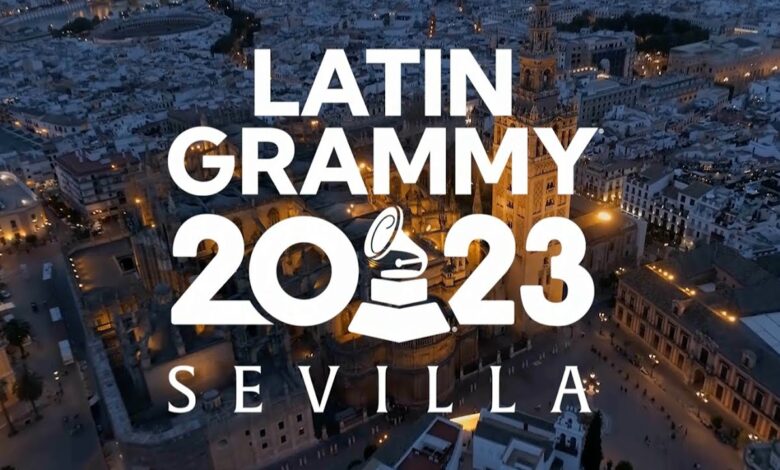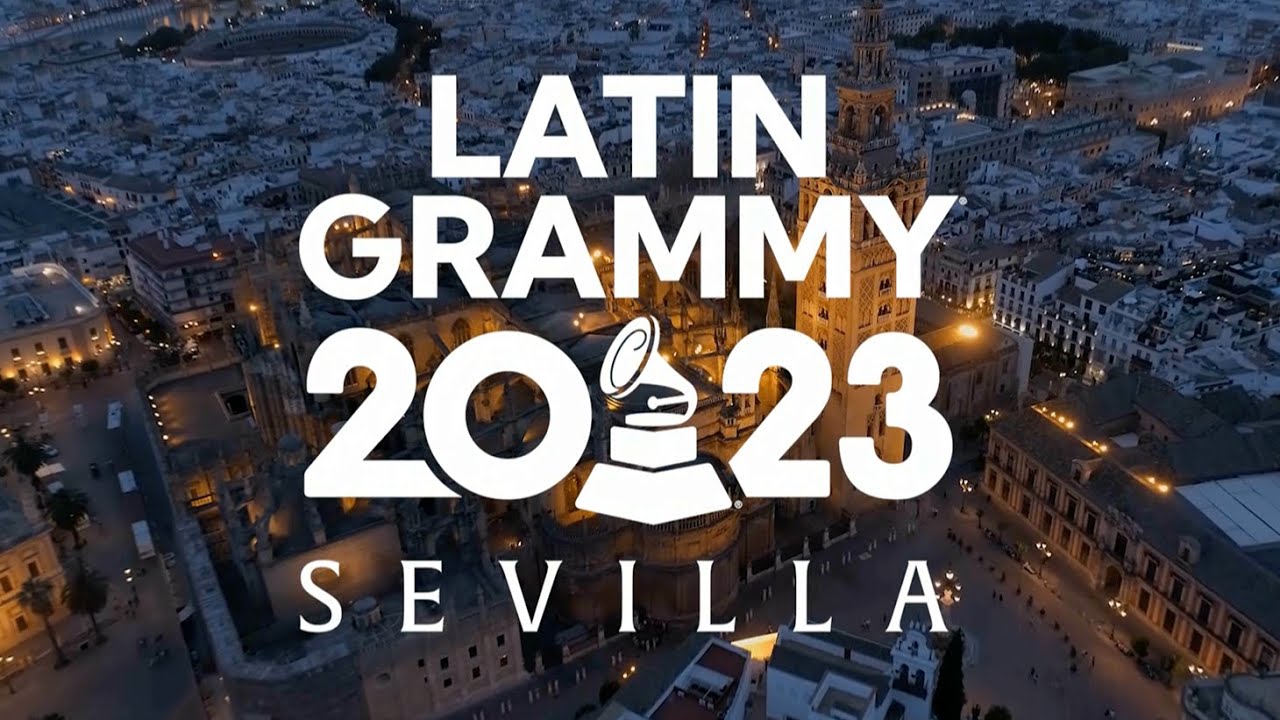
Latin Artists Marginalized at Grammys Again
Latin Artists Marginalized at Grammys Again: The 2023 Grammy Awards once again sparked controversy for their treatment of Latin artists. While Latin music has experienced a global boom in recent years, the Grammys seem to be lagging behind in recognizing the genre’s true impact.
This raises a critical question: are the Grammys truly celebrating the diversity of music, or are they perpetuating a system that continues to marginalize Latin artists?
The Grammys have a long history of overlooking Latin music. For decades, Latin artists have been relegated to niche categories, often competing against each other rather than being recognized alongside mainstream artists. This year, despite the overwhelming popularity of artists like Bad Bunny and Rosalía, the Grammys failed to award them in major categories.
This lack of recognition raises questions about the institution’s commitment to inclusivity and its understanding of the global influence of Latin music.
Impact of Marginalization

The marginalization of Latin artists at the Grammys has a significant impact on their visibility and recognition, impacting the cultural landscape of music and creating challenges and opportunities for artists within the industry. The Grammys’ approach to Latin music can have a profound influence on the cultural impact and influence of the genre.
The Impact of Marginalization on Visibility and Recognition
The Grammys’ historical tendency to overlook Latin artists in major categories has resulted in limited visibility and recognition for the genre. While there are dedicated categories for Latin music, they often receive less attention and prestige compared to mainstream categories.
This can create a perception that Latin music is less important or valuable, hindering its potential for broader mainstream recognition and appreciation. The lack of representation in major categories can also limit the opportunities for Latin artists to gain exposure to a wider audience and potentially reach new fans.
Challenges Faced by Latin Artists
The marginalization of Latin artists at the Grammys has contributed to a number of challenges faced by Latin artists in the music industry:
- Limited Access to Resources:The lack of recognition and visibility can translate into limited access to resources, such as funding, marketing, and promotion, which are crucial for artists’ success. This can make it difficult for Latin artists to compete with their mainstream counterparts for opportunities and exposure.
- Stereotyping and Misrepresentation:The Grammys’ approach can perpetuate stereotypes and misrepresentation of Latin music, often reducing it to a specific subgenre or overlooking the diversity and complexity within the genre. This can limit the creative expression and artistic freedom of Latin artists, forcing them to conform to narrow expectations.
- Exclusion from Mainstream Recognition:The Grammys’ influence extends beyond the awards themselves, impacting how the music industry perceives and values different genres. The lack of representation in major categories can reinforce the perception that Latin music is not as commercially viable or culturally relevant as other genres, leading to fewer opportunities for Latin artists to collaborate with mainstream artists and gain exposure in broader markets.
It’s disheartening to see Latin artists repeatedly overlooked at the Grammys, especially when considering the cultural impact they have on the music industry. It’s a stark reminder that while we celebrate music, we often fail to acknowledge the systemic inequalities that exist even within the realm of art.
This blatant disregard for Latin talent feels particularly poignant when you consider the news coming out of El Salvador, where a miscarriage can land you in jail. It’s a harsh reality that forces us to confront the lack of respect for women’s autonomy and bodily rights in many parts of the world, and how these injustices can manifest in various forms, including the silencing of artistic voices.
Perhaps the Grammys could learn a thing or two about inclusivity and the importance of recognizing talent regardless of origin or background.
Opportunities for Latin Artists
Despite the challenges, the marginalization of Latin artists has also presented opportunities for the genre:
- Growing Recognition and Support:The growing popularity of Latin music worldwide, driven by factors such as streaming services and global cultural exchange, has led to increased recognition and support for Latin artists. This has created a space for Latin artists to break through traditional barriers and gain wider acceptance and appreciation for their music.
- Independent Platforms and Networks:The rise of independent platforms and networks, such as online music streaming services and social media, has provided Latin artists with greater control over their music and a direct connection with their fans. This has empowered artists to bypass traditional gatekeepers and build their own audiences without relying on mainstream recognition.
It’s disheartening to see Latin artists consistently overlooked at the Grammys, a reminder that systemic biases still exist within the music industry. It’s a similar fight for those defending intellectual freedom, like the German libraries strengthening their defenses against far-right attacks.
These libraries are fighting to preserve access to knowledge, just as artists are fighting for recognition and inclusion. Both battles are crucial in ensuring a more equitable and diverse future.
- Cultural Influence and Impact:Latin music has a powerful cultural influence and impact, shaping the soundscapes and musical trends of other genres. This influence is becoming increasingly evident in mainstream music, as artists from different backgrounds incorporate Latin rhythms and melodies into their work.
This growing influence is a testament to the strength and resilience of Latin music, despite the challenges it faces.
The Grammys’ Impact on the Cultural Impact and Influence of Latin Music
The Grammys’ approach to Latin music has a significant impact on the cultural impact and influence of the genre:
- Perpetuating a Dichotomy:The Grammys’ tendency to separate Latin music into its own categories can perpetuate a dichotomy between Latin music and mainstream music, hindering the potential for cross-cultural exchange and collaboration. This can limit the cultural impact of Latin music, as it is not fully integrated into the broader musical landscape.
- Shaping Perceptions and Expectations:The Grammys’ awards and nominations can shape perceptions and expectations of what constitutes “good” or “worthy” music. The lack of representation of Latin artists in major categories can reinforce the idea that Latin music is less sophisticated or deserving of recognition than other genres.
This can affect the way audiences perceive and value Latin music, potentially hindering its cultural influence.
- Impacting the Future of Latin Music:The Grammys’ influence extends beyond the awards themselves, shaping the industry’s perception of Latin music and influencing the direction of the genre. The lack of representation in major categories can limit the opportunities for Latin artists to gain exposure to a wider audience and potentially reach new fans, potentially impacting the future of Latin music.
Addressing the Issue
The persistent underrepresentation of Latin artists at the Grammys underscores the need for systemic change within the Recording Academy. While acknowledging the Academy’s efforts to improve diversity and inclusivity, tangible solutions are crucial to ensure that Latin music receives the recognition and appreciation it deserves.
The Role of the Recording Academy in Promoting Diversity and Inclusivity
The Recording Academy plays a pivotal role in shaping the music industry’s narrative and recognizing artistic excellence. To address the issue of Latin artist underrepresentation, the Academy must proactively embrace diversity and inclusivity in its operations and decision-making processes. This involves expanding its membership to include a more diverse range of music professionals, particularly those representing Latin music.
It’s frustrating to see Latin artists consistently overlooked at the Grammys, especially when they’re making waves globally. It’s almost as if the awards show is stuck in a time warp, failing to acknowledge the vibrant diversity of music today.
Meanwhile, across the Atlantic, French police are arresting dozens of protesting farmers who broke into a Paris wholesale market , highlighting the very real struggles happening in other parts of the world. The Grammys need to wake up and recognize the talent that’s right in front of them.
It’s time to celebrate the richness of Latin music, just as we celebrate the voices of those fighting for change in other parts of the world.
Additionally, the Academy should implement transparent and objective criteria for nominations and voting, ensuring that Latin artists are evaluated fairly against their peers in all genres.
Initiatives to Ensure Recognition and Appreciation for Latin Music, Latin artists marginalized at grammys again
Several initiatives can be implemented to ensure that Latin music receives appropriate recognition and appreciation:
- Increase the number of Latin music categories at the Grammys: Expanding the current categories to include subgenres like Regional Mexican, Salsa, and Bachata would provide a more comprehensive representation of Latin music’s diversity.
- Establish a dedicated Latin music awards show: This would allow for a more focused celebration of Latin music and provide a platform for artists to showcase their talent and receive recognition.
- Develop educational programs and initiatives to promote Latin music: The Academy can collaborate with educational institutions and music organizations to create programs that foster appreciation and understanding of Latin music history, culture, and artistic contributions.
- Partner with Latin music organizations and institutions: Collaborating with organizations like the Latin Recording Academy and the National Association of Latin Music Professionals can provide valuable insights and expertise in promoting Latin music.
Cultural Significance of Latin Music

Latin music is not just a genre; it’s a cultural phenomenon that has resonated globally, shaping musical landscapes and influencing countless artists across the world. Its rich history, diverse rhythms, and vibrant melodies have captivated audiences for generations, leaving an indelible mark on the evolution of popular music.
Global Influence and Cultural Impact
Latin music has transcended geographical boundaries, becoming a global force that has left its mark on diverse cultures. Its influence can be seen in the adoption of Latin rhythms and melodies in various genres, from pop and rock to electronic music.
For instance, the infectious rhythms of salsa and merengue have found their way into contemporary pop music, while the soulful melodies of bolero and ranchera have inspired countless ballads and love songs. This cross-cultural exchange has resulted in a vibrant fusion of musical styles, enriching the tapestry of global music.
Final Review: Latin Artists Marginalized At Grammys Again

The Grammys have a responsibility to acknowledge the significant contributions of Latin artists to the global music landscape. By failing to do so, they not only perpetuate a system of marginalization but also diminish the cultural impact of Latin music.
It is time for the Grammys to evolve and truly celebrate the diverse voices and styles that make up the world of music. The future of the Grammys depends on their ability to embrace inclusivity and recognize the cultural power of Latin music.

